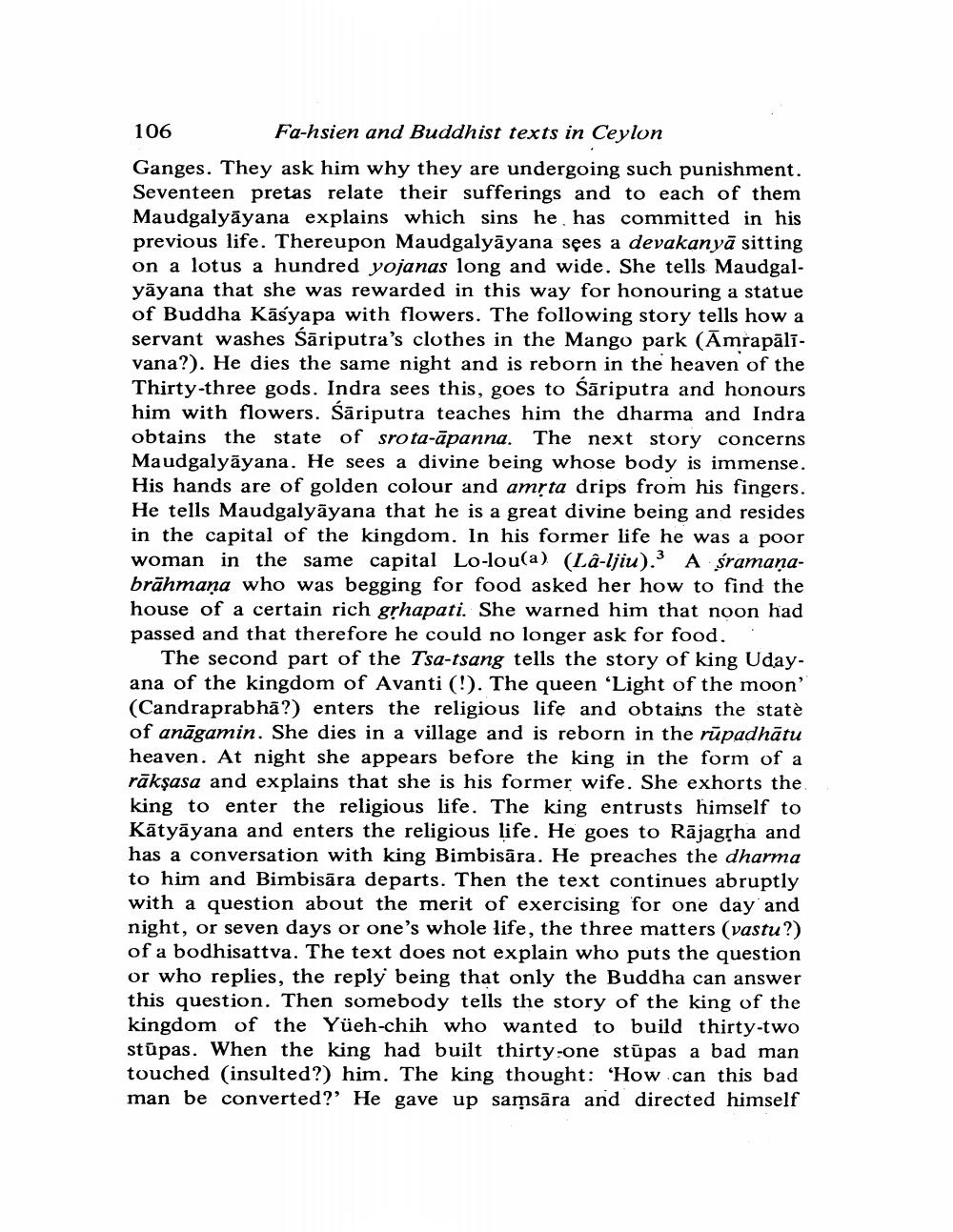Book Title: Fa Hsien And Buddhist Texts In Ceylon Author(s): Publisher: View full book textPage 2
________________ 106 Fa-hsien and Buddhist texts in Ceylon Ganges. They ask him why they are undergoing such punishment. Seventeen pretas relate their sufferings and to each of them Maudgalyayana explains which sins he has committed in his previous life. Thereupon Maudgalyayana sees a devakanya sitting on a lotus a hundred yojanas long and wide. She tells Maudgalyayana that she was rewarded in this way for honouring a statue of Buddha Kasyapa with flowers. The following story tells how a servant washes Sariputra's clothes in the Mango park (Amrapali. vana?). He dies the same night and is reborn in the heaven of the Thirty-three gods. Indra sees this, goes to Sariputra and honours him with flowers. Sariputra teaches him the dharma and Indra obtains the state of srota-apanna. The next story concerns Maudgalyayana. He sees a divine being whose body is immense. His hands are of golden colour and amata drips from his fingers. He tells Maudgalyayana that he is a great divine being and resides in the capital of the kingdom. In his former life he was a poor woman in the same capital Lo-lou(a). (La-ljiu). A sramanabrahmana who was begging for food asked her how to find the house of a certain rich glhapati. She warned him that noon had passed and that therefore he could no longer ask for food.. The second part of the Tsa-tsang tells the story of king Udayana of the kingdom of Avanti (!). The queen "Light of the moon' (Candraprabha?) enters the religious life and obtains the state of anagamin. She dies in a village and is reborn in the rupadhatu heaven. At night she appears before the king in the form of a raksasa and explains that she is his former wife. She exhorts the king to enter the religious life. The king entrusts himself to Katyayana and enters the religious life. He goes to Rajagsha and has a conversation with king Bimbisara. He preaches the dharma to him and Bimbisara departs. Then the text continues abruptly with a question about the merit of exercising for one day and night, or seven days or one's whole life, the three matters (vastu?) of a bodhisattva. The text does not explain who puts the question or who replies, the reply being that only the Buddha can answer this question. Then somebody tells the story of the king of the kingdom of the Yueh-chih who wanted to build thirty-two stupas. When the king had built thirty-one stupas a bad man touched (insulted?) him. The king thought: 'How.can this bad man be converted?' He gave up samsara and directed himselfPage Navigation
1 2 3 4 5 6 7 8 9 10 11 12
